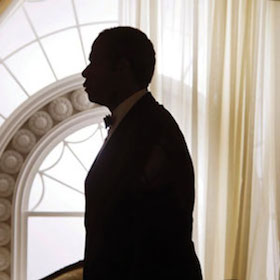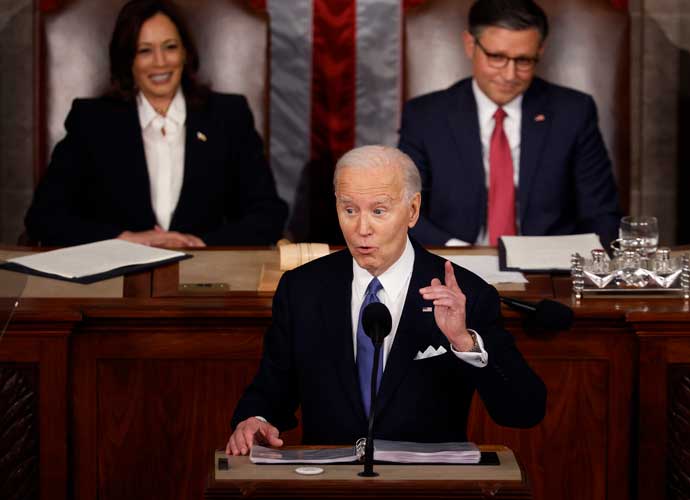'Lee Daniels' The Butler' DVD Review: Civil Rights Film Too Trite To Be Affecting

3/5
Lee Daniel’s The Butler comes across on the smaller screen, much as it does on the big screen, as a contemporary epic that finds its protagonist in the abstract idea of progress.
While Forrest Whittaker’s Cecil Gaines is The Butler’s main character, it’s what surrounds him that makes the movie. After all, if truth be told, Cecil Gaines isn’t easy to admire for the bulk of the film’s 132 minutes. From the perspective of modern sensibilities, he’s almost cowardly, shackled by the impenetrable belief that the status quo is good enough. It can’t be overlooked that he’d brought himself up and out of the cotton fields to the White House, but he’s still serving – and serving for less than his white counterparts.
One of the problems that emerge when watching The Butler, is that it fails to choose a side when it comes to Cecil. Does director Lee Daniels want us to admire him or admonish him? Is he a coward, or is he braver than what meets the eye? Furthermore, there’s a lack of nuance in Gaines and Whittaker’s portrayal that makes it nearly impossible to chalk up his fear-based decision making as part of a larger and more complex character.
Cecil started out in Macon, Georgia in 1926 – roughly 60 years after the Emancipation Proclamation. After his mother (Mariah Carey) is raped and his father (David Banner) gets shot dead by the offending property owner (Alex Pettyfer), Cecil is taken under the wing of the woman of the house (Vanessa Redgrave) and becomes house help. The training he receives under her guidance allows him to secure a job at an upscale restaurant after he leaves his mother and her ramshackle house to start a new life. From there, he finds himself at Washington, D.C.’s Excelsior Hotel. When a White House aide hears Cecil’s apolitical contribution to conversation, he believes he’ll be a perfect fit for the White House, so there he goes.
It would be remiss to review The Butler without mentioning the impressive list of actors it lured onto its cast. Watching the movie, there’s almost a prurient interest in seeing John Cusack transform into Nixon or Robin Williams become Eisenhower – and that natural interest is a detriment to movie watching. It’s an unequivocal distraction for the movie, which would have been better served by lesser-known actors who looked more like the real people they were portraying. With that being said, Whittaker gives his usual strong performance and is surrounding by notable supporting performances by Oprah Winfrey, Lenny Kravitz, Cuba Gooding Jr., Terrence Howard and more.
The real main character, the character that Daniels’ more clearly wants viewers to root for – progress – charts about 50 years of American history. Emmitt Till’s murder sparks a fire in the civil rights movement (and in Cecil’s son Louis): desegregation of schools in Little Rock, Ark., the lunch table in Greensboro N.C., the freedom bus attacked by the Ku Klux Klan. Cecil’s younger son Charlie (Elijah Kelley) dies fighting for America in the Vietnam War. Louis (David Oyelowo) becomes a member of the Black Panthers, then goes to law school and gets into politics, even making a run for a congressional seat. And finally, in 2008, America has itself a black president.
It’s hard to watch The Butler, and likewise talk about it, without stating the obvious point that Daniels’ movie parallels the narrative structure of Forrest Gump. There’s the narrator’s origin story filled with troubled times. There are fragments of an interesting yet modest life lived, interspersed with visions of the history that occurred around it – which it intersects so often as to require a suspension of disbelief. Does the story The Butler tells need to be told? Yes. Could it have been better served by a less contrived plot? Certainly. Yet if one can get past the unbelievable and the flush of cameos and root for progress, The Butler can be a joy to watch.
DVD Extras
DVD extras for The Butler include Lee Daniels’ The Butler: An American Story, which offers insight into Daniels’ process of making the film and behind the scenes footage, and another featurette highlighting the real Freedom Riders. Gladys Knight and Lenny Kravitz’s music video for “You and I Ain’t Nothin’ No More” is also among the extras, as are elected scenes and a gag reel.
Get Uinterview's FREE iPhone App For Daily News Updates here.
Get the FREE Uinterview iPad app here and watch our videos anywhere.
RELATED ARTICLES
Get the most-revealing celebrity conversations with the uInterview podcast!








Leave a comment